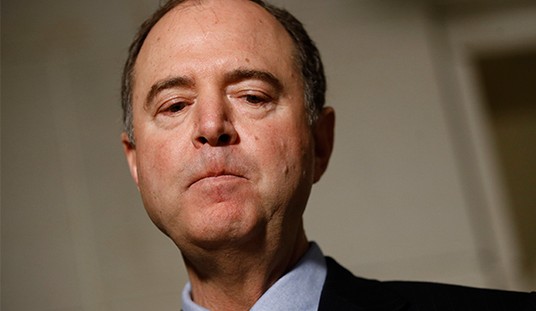The chairman of the House Armed Services Committee declared this morning at a hearing to review the Obama administration’s strategy against ISIS that any authorization for military force that excludes boots on the ground will not make it through the House.
Before lawmakers left for the campaign recess, the White House was busy assuring Capitol Hill that they were already covered for the strikes against ISIS by the 2001 and 2003 AUMFs.
In his press conference the day after midterm elections, President Obama said he wanted Congress to pass a new AUMF — but wasn’t clear on a timetable of this Congress or the next.
Defense Secretary Chuck Hagel and Chairman of the Joint Chiefs of Staff Gen. Martin Dempsey appeared before this morning’s hearing.
Chairman Buck McKeon (R-Calif.) said an Overseas Contingency Operations budget amendment received by the committee on Monday “pays for the air campaign and adds more advisers, but it does not appear to reflect any changes in strategy.”
“However, we know that targeting and airstrikes are getting harder as ISIL changes tactics. And limiting our advisors to headquarters buildings will not help newly trained Iraqi and Syrian opposition forces hold terrain, much less defeat ISIL in the field. Yet the president has doubled down on his policy of ‘no boots on the ground,’ despite any advice you give him,” McKeon said.
“So my fundamental question is: how can you successfully execute the mission you’ve been given – to ‘degrade and ultimately destroy’ ISIL – when some of your best options are taken off the table? Mr. Secretary, both of your predecessors, Bob Gates and Leon Panetta, have stated that we need boots on the ground if there’s to be any hope of success in the strategy. Even Coach K – Duke’s basketball coach – told an Army conference last month that declaring we won’t use ground forces is like telling your opponent you’re not going to play your best players.”
McKeon noted that Congress “may very well be considering a new AUMF in the near future.”
“But I would offer a warning that, should the AUMF proposed by the president contain such limitations, it will be D.O.A. in Congress,” the chairman warned. “I will not support sending our military into harm’s way with their arms tied behind their backs.”
Dempsey said the administration was using the strategy of “a modest footprint.”
“Any expansion of that, I think, would — would be equally modest. I just don’t foresee a circumstance when it would be in our interest to take this fight on ourselves with a large military contingent,” Dempsey said.
“Could there be an exception? I mentioned assumptions in my — in my prepared statement. One of our assumptions is that the government of Iraq will be inclusive. One of the assumptions is that the Iraqi security forces will be willing to take back Al Anbar Provinces and Nineveh Province,” the general continued. “If those assumptions are rendered invalid, I will have to adjust my recommendations.”
Another concern McKeon brought up in his opening statement was terrorists once detained by the U.S. returning to the battlefield — including “caliph” al-Baghdadi.
“There are reports of former Gitmo detainees returning to the fight and recruiting militants for ISIL. Despite these disturbing trends, we’ve seen an increase in notifications regarding detainee transfers from Gitmo,” he said.
“Mr. Secretary and General Dempsey, you shoulder an immense responsibility each time you sign off or concur on these releases, and I understand you’re under pressure to release even more. But the roughly 150 detainees that are left are the worst of the worst. To continue these releases – just as we have had to open a new front in the war on terror – is unwise.
Hagel said if he can “get the assurances required by the host governments and the mechanisms, and I go into detail, that it substantially mitigates the risk, then I will assign it.”
“Every certification that I make, bottom line, with all the other requirements by law that I have to comply with — and I do comply with every part of the law — in my best judgment, the best judgment of our intelligence community, of our joint chiefs, of the interagency of our — of our secretary State, Homeland Security, has to be unanimous before I will seriously entertain it,” he said of signing off on releases.









Join the conversation as a VIP Member